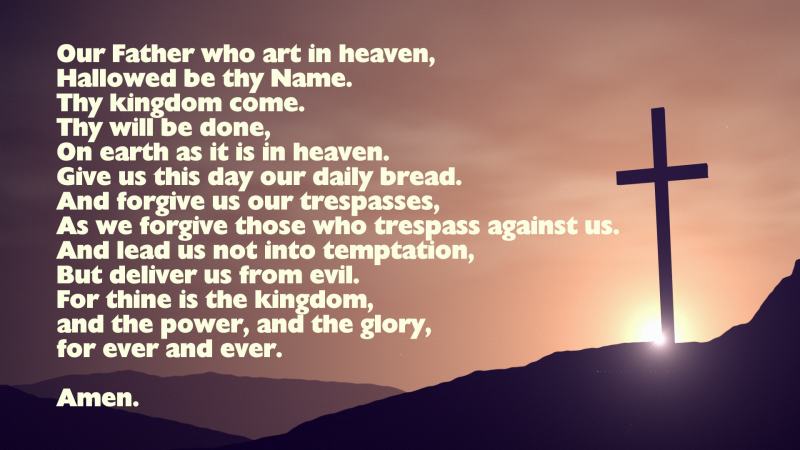"Thy Will Be Done"
Commentary on the Lord's Prayer
"Thy will be done" is the third of the seven petitions in the Lord's prayer (the first three address God, the second four are prayers related to our needs and concerns). The third request is that God's will occurs. Here we are aligning our will with God's will, we are submitting ourselves to Him, and asking that His way triumphs.
It is worth noting that Jesus prays these very words on the Mount of Olives, after sharing his last meal with the disciples:
“Father, if you are willing, take this cup from me; yet not my will, but yours be done.” (Luke 22:42, NIV)
We are told that his anguish was so great that his sweat resembled blood falling to the ground (Luke 22:44). So if we are to follow in the footsteps of Christ and pray “Your will be done” this may come at great cost. For here we are aligning our hearts with heavens ways and laying down what we might want or choose. Instead, we are declaring that God’s will is done in our lives - right here, right now.
This element of the prayer also can be prayed as an intercession for others “Thy will be done in earth, as it is in heaven”
So as we say these lines world issues such as justice for the poor, or peace in war troubled lands may come to mind, or even things closer to home such as prayers for your friends or for loved ones.
Discover more insights into this line of the prayer by reading the writings of Matthew Henry, Adam Clarke and Albert Barnes further down this page.
resources on this page
Adam Clarke's on "Thy Will Be Done "
Albert Barnes on "Thy Will Be Done "
(Commentary on Matthew chapter 6, verse 10)
There are only two kinds of people in the end: those who say to God, "Thy will be done," and those to whom God says, in the end, "Thy will be done." All that are in Hell, choose it. Without that self-choice there could be no Hell. No soul that seriously and constantly desires joy will ever miss it. Those who seek find. Those who knock it is opened.
From "The Great Divorce"
C.S. Lewis, English novelist and Christian Apologist (1898-1963)
Adam Clarke
on "Thy Will Be Done "
Thy will be done] This petition is properly added to the preceding; for when the kingdom of righteousness, peace, and joy, in the Holy Spirit, is established in the heart, there is then an ample provision made for the fulfilment of the Divine will.
The will of God is infinitely good, wise, and holy; to have it fulfilled in and among men, is to have infinite goodness, wisdom, and holiness diffused throughout the universe; and earth made the counterpart of heaven.
As it is in heaven.] The Jews maintained, that they were the angels of God upon earth, as these pure spirits were angels of God in heaven; hence they said, "As the angels sanctify the Divine name in heaven, so the Israelites sanctify the Divine name, upon earth." See Schoettgen.
Observe, 1st. The salvation of the soul is the result of two wills conjoined: the will of God, and the will of man. If God will not the salvation of man, he cannot be saved: If, man will not the salvation God has prepared for him, he cannot be delivered from his sins. 2dly. This petition certainly points out a deliverance from all sin; for nothing that is unholy can consist with the Divine will, and if this be fulfilled in man, surely sin shall be banished from his soul. 3dly. This is farther evident from these words, as it is in heaven; i.e. as the angels do it: viz. with all zeal, diligence, love, delight, and perseverance. 4thly. Does not the petition plainly imply, we may live without sinning against God? Surely the holy angels never mingle iniquity with their loving obedience; and as our Lord teaches us to pray, that we do his will here as they do it in heaven, can it be thought he would put a petition in our mouths, the fulfilment of which was impossible? 5thly. This certainly destroys the assertion: "There is no such state of purification, to be attained here, in which it may be said, the soul is redeemed from sinful passions and desires;" for it is on EARTH that we are commanded to pray that this will, which is our sanctification, may be done. 6thly. Our souls can never be truly happy, till our WILLS be entirely subjected to, and become one with, the will of God. 7thly. How can any person offer this petition to his Maker, who thinks of nothing less than the performance of the will of God, and of nothing more than doing his own?
Some see the mystery of the Trinity in the three preceding petitions. The first being, addressed to the Father, as the source of all holiness. The second, to the Son, who establishes the kingdom of God upon earth. The third, to the Holy Spirit, who by his energy works in men to will and to perform.
To offer these three petitions with success at the throne of God, three graces, essential to our salvation, must be brought into exercise; and, indeed, the petitions themselves necessarily suppose them.
FAITH, Our Father-for he that cometh to God, must believe that he is.
HOPE, Thy kingdom come-For this grace has for its object good things to come.
LOVE, Thy will be done-For love is the incentive to and principle of all obedience to God, and beneficence to man.
Source: Adam Clarke's Commentary on the Bible
Matthew Henry on "Thy Will Be Done"
3. Thy will be done in earth as it is in heaven. We pray that God's kingdom being come, we and others may be brought into obedience to all the laws and ordinances of it. By this let it appear that Christ's kingdom is come, let God's will be done; and by this let is appear that it is come as a kingdom of heaven, let it introduce a heaven upon earth. We make Christ but a titular Prince, if we call him King, and do not do his will: having prayed that he may rule us, we pray that we may in every thing be ruled by him. Observe, (1.) The thing prayed for, thy will be done; "Lord, do what thou pleasest with me and mine; 1Sa 3:18. I refer myself to thee, and am well satisfied that all thy counsel concerning me should be performed." In this sense Christ prayed, not my will, but thine be done. "Enable me to do what is pleasing to thee; give me that grace that is necessary to the right knowledge of thy will, and an acceptable obedience to it. Let thy will be done conscientiously by me and others, not our own will, the will of the flesh, or the mind, not the will of men (1Pe 4:2), much less Satan's will (Joh 8:44), that we may neither displease God in any thing we do (ut nihil nostrum displiceat Deo), nor be displeased at any thing God does" (ut nihil Dei displiceat nobis). (2.) The pattern of it, that it might be done on earth, in this place of our trial and probation (where our work must be done, or it never will be done), as it is done in heaven, that place of rest and joy. We pray that earth may be made more like heaven by the observance of God's will (this earth, which, through the prevalency of Satan's will, has become so near akin to hell), and that saints may be made more like the holy angels in their devotion and obedience. We are on earth, blessed be God, not yet under the earth; we pray for the living only, not for the dead that have gone down into silence.
Source: Matthew Henry's Commentary on the Whole Bible Volume V (Matthew to John)
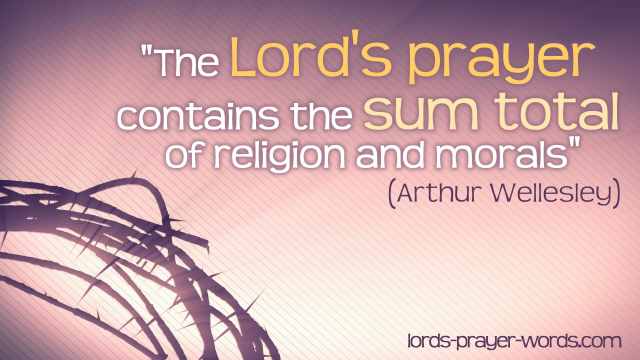
Thy will be done. The will of God is, that men should obey his law, and be holy. The word will, here, has reference to his law, and to what would be acceptable to him; that is, righteousness. To pray, then, that his will may be done on earth as in heaven, is to pray that his law, his revealed will, may be obeyed and loved. His law is perfectly obeyed in heaven, and his true children most ardently desire and pray that it may also be done on the earth. The object of these three first petitions is that God's name should be glorified, and his kingdom established; and by being placed first, we learn that his glory and kingdom are of more consequence than our wants, and that these should be first in our hearts and petitions before a throne of grace. *
(*) The following clauses respecting this prayer are found in the writings of the Jews, and were doubtless familiar in the time of Christ: "That prayer," say the Rabbins, "in which there is no mention made of the kingdom of heaven, is not a prayer.' "What," say they, "is a short prayer? Ans. Do thy will in heaven, and give rest to the spirits fearing thee below." Give us this day, etc. The Jews had a prayer like this: "The necessities of thy people are many, and their knowledge small; so that they do not know how to make known their wants: let it be thy good pleasure to give to each one what is necessary for his sustenance," etc. Deliver us from evil. The Jews prayed, "Be it thy good pleasure to free us from an evil man, and an evil event; from evil affections, from an evil companion and neighbour, from Satan," etc. The prayers of the Jews were generally closed with a doxology, or ascription of praise, not unlike this in the Lord's prayer. The people, at the close of the prayer, generally responded, "Amen!"
Source: Barnes' New Testament Notes
Next: "Give us this day..."
The Lord's Prayer
A short inspiring reading of this famous prayer:-
about the commentary writers
In this section you can discover more about the Lord's Prayer through some of the most notable exponents in biblical interpretation. 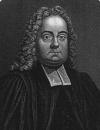 • Matthew Henry (1662-1714) was a non-conformist English clerygman. His commentaries on the scriptures are intended as a devotional guide to the Bible, rather than as a critical study.
• Matthew Henry (1662-1714) was a non-conformist English clerygman. His commentaries on the scriptures are intended as a devotional guide to the Bible, rather than as a critical study.
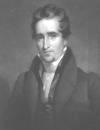 • Albert Barnes (1798-1870) was a Presbyterian minister and American theologian. His 'New Testament Notes' are invaluable in helping to understand difficult passages of scripture. Barnes frequently references the original Greek to reveal the meaning of the text.
• Albert Barnes (1798-1870) was a Presbyterian minister and American theologian. His 'New Testament Notes' are invaluable in helping to understand difficult passages of scripture. Barnes frequently references the original Greek to reveal the meaning of the text.
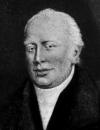 • Adam Clarke (1769 or 62 to 1832) was a Methodist minister and biblical theologian. His extensive commentary on the New Testament, at around 6000 pages long, is one of the longest works on the bible ever written by one person.
• Adam Clarke (1769 or 62 to 1832) was a Methodist minister and biblical theologian. His extensive commentary on the New Testament, at around 6000 pages long, is one of the longest works on the bible ever written by one person.
read more commentaries and studies on the Lord's Prayer in our In-Depth Commentary Section
More resources on the Lord's prayer...
here are links to some commentaries and versions on this famous prayer

